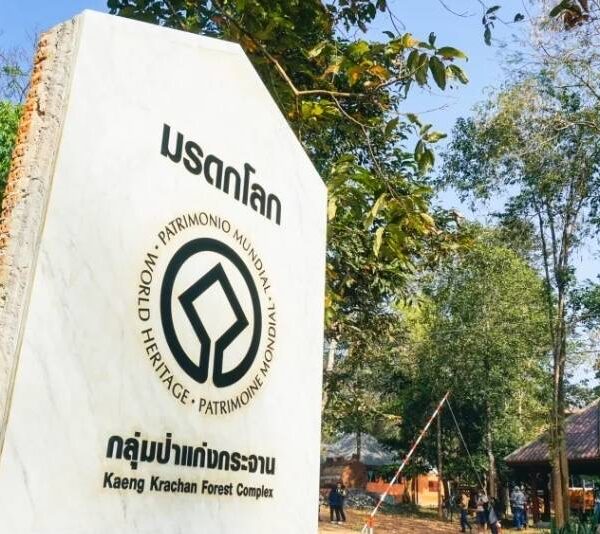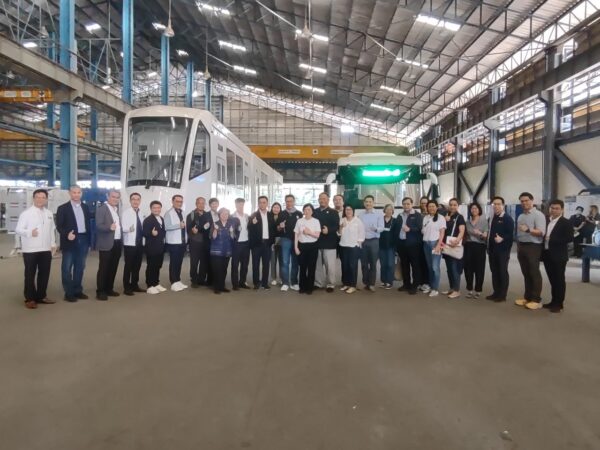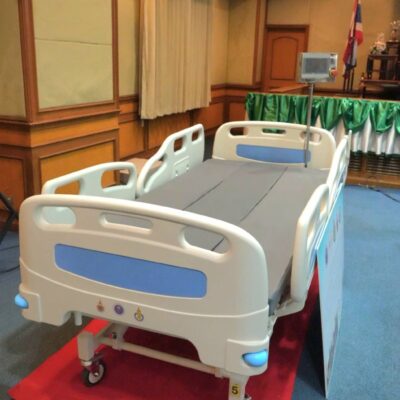The Program Management Unit for Competitiveness (PMUC) has introduced a project to support research funding for the development of artificial intelligence systems that can understand and process the Thai language, known as “OpenThaiGPT” or LLM (LARGE LANGUAGE MODEL). This system can process the Thai language up to 10 times faster than CHATGPT by developing a Thai language dictionary with more than 25,000 words, addressing information retrieval, translation, and automatically generating Thai language data. It manages the complexity of word segmentation and Thai prosody. “OpenThaiGPT” is an open-source project developed collaboratively by both government and private sector organizations in Thailand. It aims to facilitate knowledge exchange and create opportunities for developers of Generative AI systems, ultimately enhancing Thailand’s sustainable competitiveness in the digital field.
On September 27, 2023, at Victor Club at Samyan Mitrtown, Professor Dr. Thongchai Suwansichon, the Director of PMUC, presided over the seminar “Generative AI (OpenThaiGPT): the Challenges and Opportunities for Thailand.” The event was organized by PMUC’s Digital Platform Division, in collaboration with the Digital Government Development Office (an independent government entity), the Digital Council of Thailand, CMKL University, the Artificial Intelligence Association of Thailand (AIEAT), the National Electronics and Computer Technology Center (NECTEC), Mahidol University’s Faculty of Information and Communication Technology, National Telecom Public Company Limited (a state enterprise), Amazon Web Services (Thailand) Ltd, and Professor William Sanders, Dean of the College of Engineering at Carnegie Mellon University. During the seminar, the participants discussed and provided insights on the competitiveness of Thailand in the field of Generative AI.
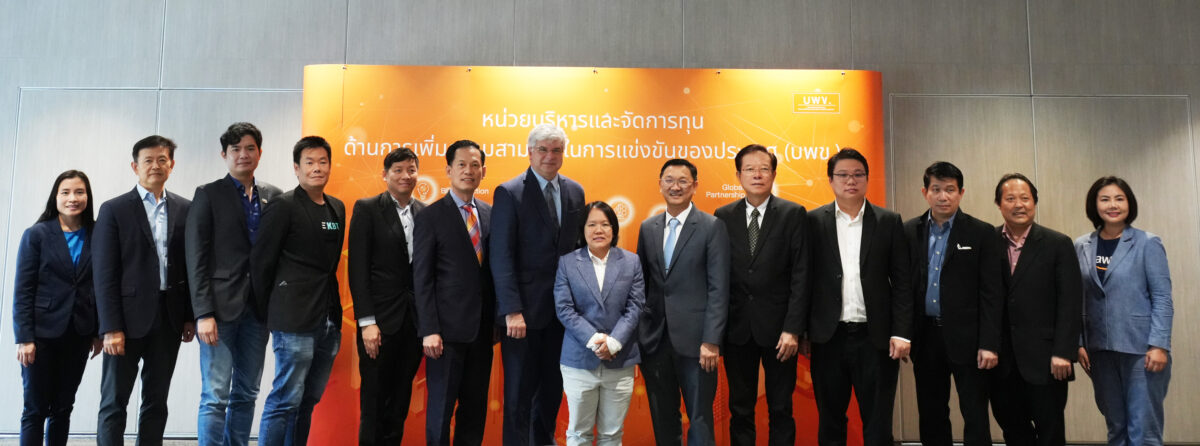
Dr. Thongchai stated that the PMUC is an organization responsible for allocating research funds and fostering innovation to enhance the competitiveness of both the manufacturing and service sectors, as well as developing innovation platforms and highly skilled personnel in fields like artificial intelligence, smart electronics, robotics, automation, and medical technology to achieve global potential and meet the needs of the target industries according to the Science, Research, and Innovation Plan for 2023-2027. He said, “Today marks a significant milestone as PMUC, together with leading Thai agencies, will collaborate to drive the development of Generative AI, build ecosystems, and develop high-caliber intellectual human resources to enhance the efficiency of existing technologies. This will be a crucial start in developing the country’s digital economy.”
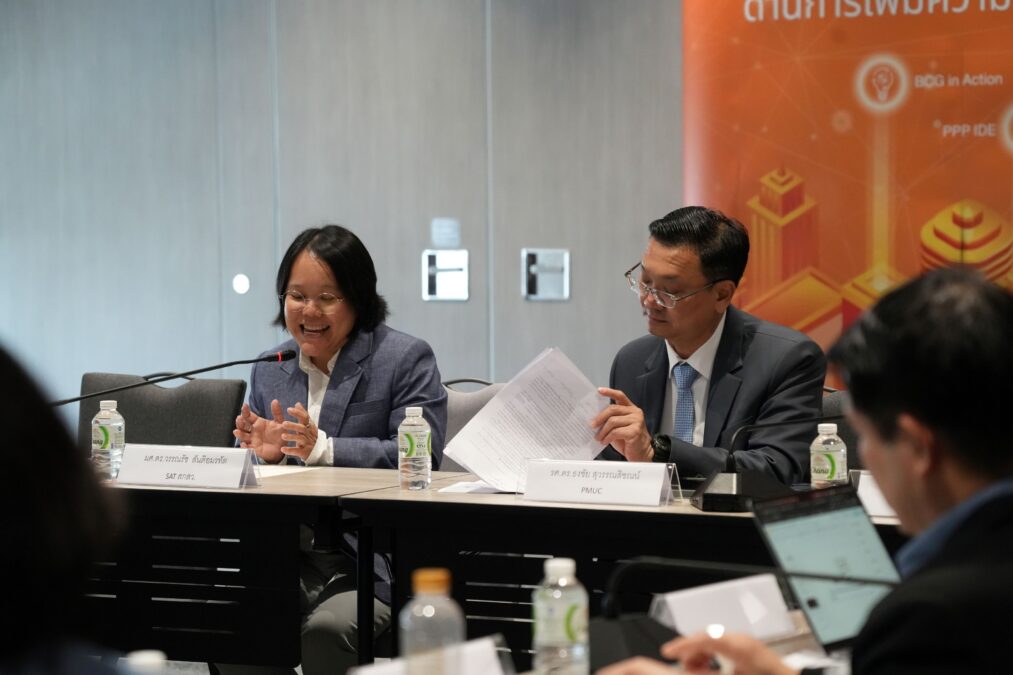
Asst. Prof., Wannarat Santiamorntat, Chairman of the Strategic Agenda Team of the Science, Research and Innovaiton program (SRI), and Chairman of the Digital Platform Subcommittee at PMUC, explained that the TSRI and PMUC connect all sectors to develop the country’s AI systems to be competitive internationally as per the National AI Development Strategy for Thailand (2022-2027), focusing on AI technology development to enhance the core industries of the country. AI plays a vital role in sustaining economic growth.
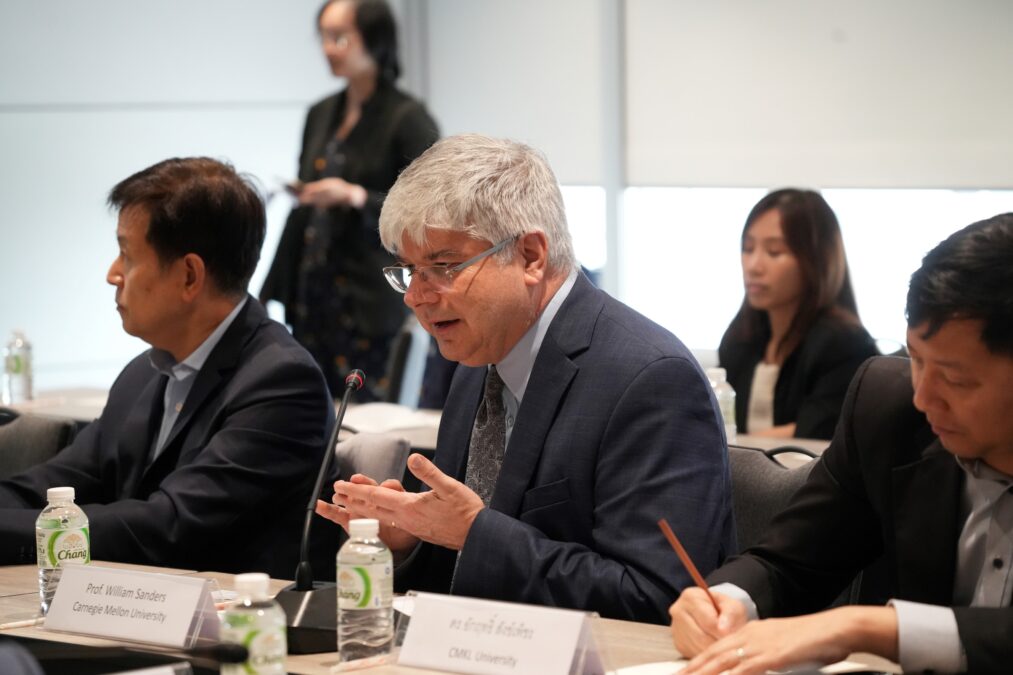
Prof. William Sanders, the Dean of the College of Engineering at Carnegie Mellon University, discussed the topic “AI Engineering: A Transformative Paradigm for Engineering.” He mentioned that artificial intelligence (AI), which was once a topic in science fiction, has evolved into AI engineering, which now influences every aspect of the current world. The development of AI engineering’s capabilities is not solely dependent on the advancement of AI algorithms and technologies, but it requires an emphasis on developing AI engineering personnel from the beginning to make systems highly efficient and trustworthy. Therefore, it is essential to prioritize the development of personnel in AI engineering.
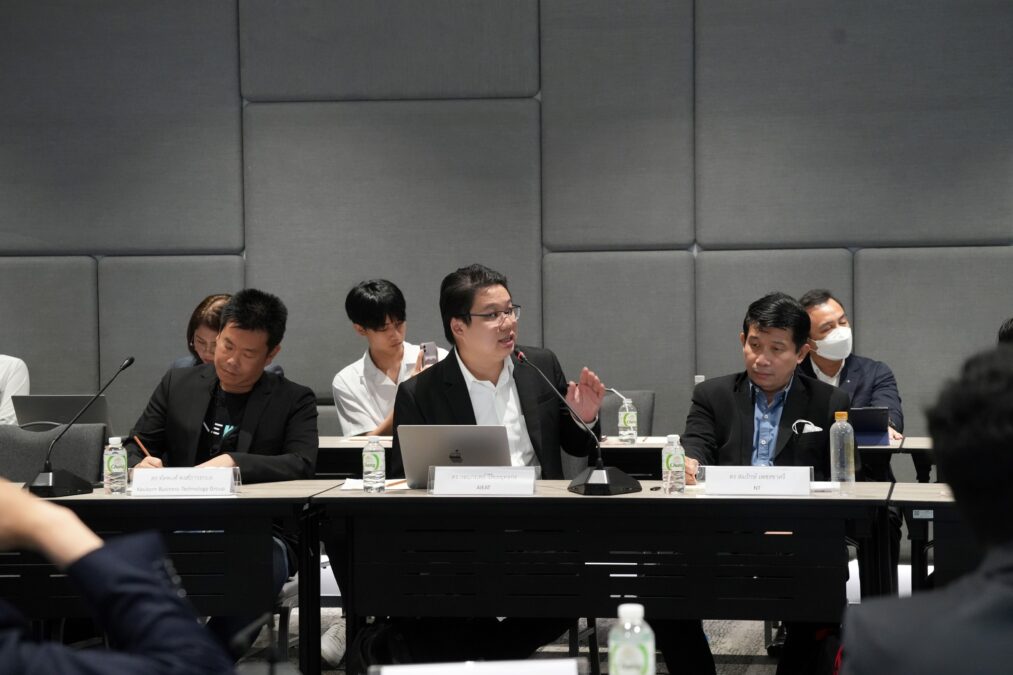
Dr. Kobkrit Viriyayudhakorn, the Chairman of the AI and Emerging Technologies Association of Thailand (AIEAT), who leads the research project, mentioned that OpenAI GPT-3.5 (Thai) has introduced three models since March 2023, with the latest model capable of processing the Thai language up to 10 times faster than ChatGPT, thanks to the development of a Thai-language dictionary database with more than 25,000 word to address the need for information retrieval, translation, and automatic Thai language processing, managing the complexity of word segmentation and Thai spelling. OpenAI GPT-3.5 (Thai) has allowed more than 3,000 businesses to download the original code for free and further develop it. With research funding from PMUC, a new OpenAI GPT-3.5 (Thai) model has been developed and enhanced using Reinforcement Learning from Human Feedback (RLHF) to make it smarter, capable of passing the online high school grade-12 examination. The new model is expected to be introduced early next year.


